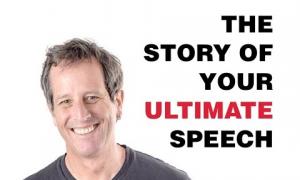This time, with feeling
September 13, 2017
In professional development seminars, speechwriters are modeling the emotional candor and personal storytelling that they ask of their clients.
Something’s happening here.
I’ve been running professional development seminars for 25. For most of those years, seminars were seminars: The delivery of principles and best practices by an Expert Who Knew to Practitioners Who Wanted to Know. Good seminar leaders had funny lines and told amusing anecdotes and often charmed audiences—but usually with erudition, and never with emotion.
And seminar participants, for their part, would bellyache about the bureaucracy or the union or the corporate culture—but never about the boss, and always on an intellectual basis, never an emotional one. A popular seminar leader once told me he could get a corporate seminar crowd tittering simply by acknowledging a scab on his elbow, so detached were white collar workers from the physical, let alone emotional, parts of their being.
Over the last 10 years—and increasingly every year—I am seeing people bring their personal lives into these professional meetings. A couple years ago PepsiCo speechwriter Rod Thorn gave a keynote speech at a communication conference about his hardscrabble upbringing under an abusive, alcoholic father, and how it informs his work as a hotshot communication exec flying around corporate in jets bigger than the trailer he grew up in. “I am the people I’ve been flying over,” he said.
Nobody was speaking that way 15 years ago, or maybe even 10.
In a Professional Speechwriters Association seminar just last week, one participant discussed her divorce. Another talked about a career crisis. A third told a long story about “not my finest hour” as a parent. A fourth played “Moon River” on his harmonica. A fifth shared a dream that she said had taken over her whole life. And a sixth told me as we walked to lunch that she’d had a psychological meltdown three years ago that was so complete that it put her in a mental institution for 17 days and ended her marriage. (But they got back together again. They wrote a book together, and she wants to do a TED Talk.)
Some of these outpourings were solicited by the seminar leader as part of a storytelling exercise. Others weren’t. All were shared freely and without apparent reservation. And most of the rest of the group responded with laughter and occasionally, with tears. The seminar leader, included.
And this was all taken in the stride of an intellectually intensive all-day event that was primarily focused on the sharing of rhetorical techniques for professional speechwriters.
This never would have happened at a professional event when I was first learning the social parameters of such events 25 years ago.
I know speechwriters who will read this and say a professional event is not a confessional event, and that people shouldn’t show such vulnerability in the company of their peers—let alone in the company of the executive director of their professional association.
(Even if he’s misting up, too—which I occasionally do, touched by the proximity and sincerity of the people I serve and with whom I share the common cause of communication.)
But I’d say that for people who try to do meaningful communication in corporate cultures that eschew candor, vulnerability, humor, love and heroes—getting together with their fellow sufferers is inherently emotional. And sharing with one another emotions that they may not dare to share with their colleagues and rivals at work—well, I’m awfully happy to offer that opportunity at our seminars and conferences, in addition to our rigorous curricula.
And I hope it rubs off on corporate bosses, and, where appropriate, adds humanity to the speeches they deliver. —DM



